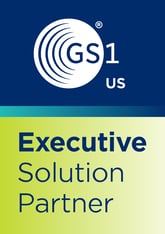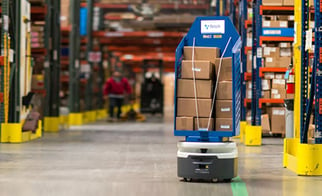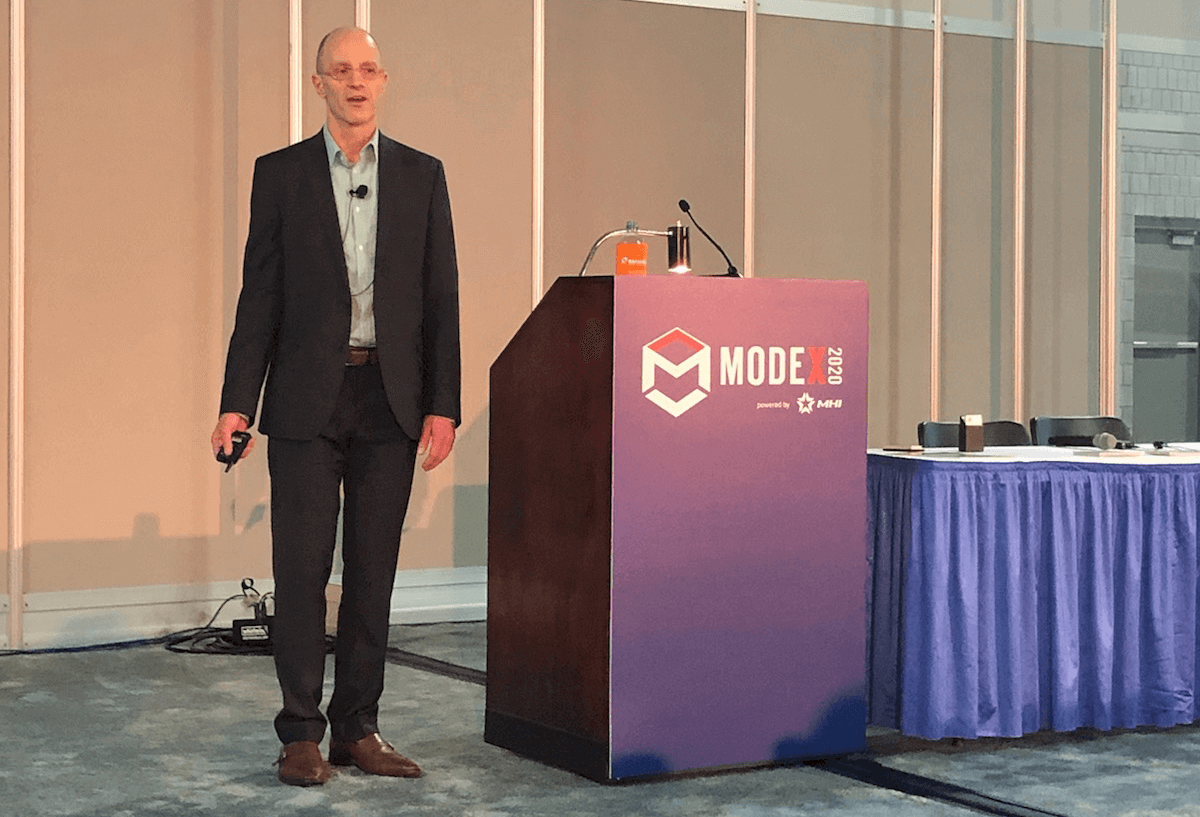Last month at MODEX 2020, Barcoding’s supply chain architect Peter Zalinski hosted a great talk entitled, “Labels and Data: How to Achieve B2B Supply Chain Excellence.” He shared advice on how manufacturing and distribution (B2B) supply chains can make the most out of GS1 standards and best practices – especially important now when supply chain visibility and efficiency can make or break an organization.
At Barcoding, Zalinski helps organizations discover and document their target goals and then creates a roadmap for how to achieve them, whether through a short-term project or continuous improvement initiative. Barcoding boils this process and approach down into two easy-to-remember acronyms:
1) PPT: process, people, and technology.
2) C3: symbolizes three important “C” outcomes from our work —reducing cost, increasing cash flow, and improving the customer experience.
We use our PPT approach to get to know our customers’ businesses and their unique goals, employees, and cultures in order to determine the best fit for enabling technology and standards like those from GS1.
Identifying B2B Supply Chain Excellence
We all want to achieve excellence, but what exactly does that look like in practice? Say an important part for one of your machines breaks and halts production. Thankfully, you can order a new part and it will arrive later that day, along with a large shipment of goods. If your enterprise runs on a manual process, you’ll need to wait in order to manually receive, inspect, validate, and put away the products. It could be 1-4 hours until the part reaches inventory, even though it’s already within your four walls.
That is not a very effective process. Time is wasted and money is lost while production is stopped. With an automated receipt process and a warehouse management system, that process could be reduced to less than 20 minutes. B2B supply chain excellence means visibility is increased, systems are optimized, and time and money are saved.
Improving the Customer Experience
Improving the customer experience is all about adding value to your products. “It’s not just what they’re delivering, it’s how they go about delivering it to you in a way that adds value and makes your life better,” Zalinksi said.
For example, think about a specialized coffeeshop. If you purchase a handcrafted beverage, it costs more than it would to make it yourself or if you purchased it from a different business. The business adds value to the product by making the experience nicer, like free wifi and a cozy ambience in the coffeeshop or a special custom-made drink with fine ingredients.
In the supply chain, we can add value— by adding activities that make our customers’ experiences better. Examples include customer compliant labeling, serial shipping container codes (SSCC’s) and ASN’s / EDI. The more data that is shared, the more money that is saved – and the better the experience.
Using GS1 Standards
GS1 standards allow you to capture, share and use data through a common language. They are an important part of the supply chain that allow you to improve communication, both within your own business and across the supply chain on a larger scale. GS1 standards also support Industry 4.0 with automation and data exchange digitalization.
allow you to capture, share and use data through a common language. They are an important part of the supply chain that allow you to improve communication, both within your own business and across the supply chain on a larger scale. GS1 standards also support Industry 4.0 with automation and data exchange digitalization.
GS1 standards allow you to reduce inefficiencies with improved product information, giving you enhanced traceability. Electronic order management and automatic data capture make the process more efficient, accurate, and connected by reducing manual processes. Altogether, this leads to operational excellence across the supply chain – which is why Barcoding supports these implementations.
Watch the video below to see Peter’s live session from MODEX:
About Peter
Peter Zalinski is a supply chain architect at Barcoding, Inc. who has over 20 years of experience with AIDC and the supply chain. He was most recently named “Rockstar of the Supply Chain” by Food Logistics magazine.
About Modex
MODEX is an annual conference that brings together businesses, experts and supply chain enthusiasts alike to share what’s new and exciting in the industry. This year, Barcoding #SupplyChainGeeks shared insights from our booth and Zalinski presented on the aforementioned.
About Barcoding
Barcoding, Inc. can help you find areas for improvement so that you can make the most out of your systems. Contact us to schedule your FREE label assessment and let’s create a supply chain that is more efficient, accurate, and connected, together.
Want more Barcoding?
To stay in the loop about everything new in the supply chain world, check back for more posts on the Barcoding Blog. You can also keep up with us and our fellow #SupplyChainGeeks through our social media pages on Twitter, Facebook, LinkedIn, and Instagram!



 allow you to capture, share and use data through a common language. They are an important part of the supply chain that allow you to improve communication, both within your own business and across the supply chain on a larger scale. GS1 standards also support Industry 4.0 with automation and data exchange digitalization.
allow you to capture, share and use data through a common language. They are an important part of the supply chain that allow you to improve communication, both within your own business and across the supply chain on a larger scale. GS1 standards also support Industry 4.0 with automation and data exchange digitalization.
